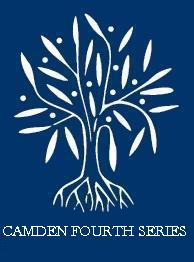No CrossRef data available.
Article contents
III. Sir William Wentworth's Other Papers
Published online by Cambridge University Press: 21 December 2009
Extract
8. Thomas Lord Burghley to Sir William Wentworth (SC, xx/188).
After my verie hartie commendacons, whereas it hath pleased her Maiestie to constitute you high sherife for the Countye of Yorke and that the Clarkship of the Attachmentts in that Cowrte wherof I am President hath bin usuallie conferred upon some such person as the Lord President should recommend to that place; I, not dowbtinge but you will use the same manner of gratificacon toward mee as my predecessors haue receiued and myself obtained from such as haue bin Sheriffes before you, do hartelie praye you to bestowe that office upon my seruant Peter Chapman, whom I haue thought good to name unto you for the execucon of the same under you which I shall both take as an argument of your loue and good affeccon to mee and wilbe readie to requite it as occasion shalbe offered. And so I committ you to God's safe protecconfom Newarke this 27th of Nouember 1601 your very louyng frend, Tho: Burghley. To my verie lovinge freind Willm Wentworth esquire, high Sheriffe for the countie of Yorke.
- Type
- Research Article
- Information
- Copyright
- Copyright © Royal Historical Society 1973
References
page 48 note 1 Lambeth Palace Library, MS. 708, fo. 131; Robert Somerscales, John Bouth, Edward Morehouse to Gilbert, earl of Shrewsbury, from York, 12 March 1603/4. According to the earl's letters, ‘… we have laboured so many freeholders as possibly we could in our shorte warninge procure to geve their first voyces to Mr Clifforde’ and their second voices according to the lord president's further nomination. The vice-president told them this was Sir John Savile and they were present at ‘his conference with the counsell touchyng the eleccon before his going to the castell’. He was ‘well contented’ that Clifford should be first ‘howsoeuer the freholders should be affected towards him and the number of his [Savile's] syde being much the greater … and upon the eleccon, beyng caryed upon the freholders’ shoulders cryed himselfe “A Clifforde” …‘
page 51 note 1 See Table II above, p. x.
page 52 note 1 Lambeth Palace Library, MS. 708, fo. 63, William Wentworth to Gilbert, earl of Shrewsbury, 12 October 1607, ‘I was sentt for in all haste into Glocestreshire by the sones of my father in lawe upon his death who trusted me with the disposing of all he had …’
page 53 note 1 This is presumably Edmund Dean, M.D., of Oxford, 1572–1640; Raach, J. H., A Directory of English Country Physicians 1603–1643 (London, 1962), p. 120.Google Scholar
page 55 note 1 He does not seem to have followed this career; in 1623 he was gaining military experience abroad; Knowler, i, p. 18.
page 55 note 2 In the event they all went to University College, Oxford. For further information about the provision for Sir William's younger children, see Econ. History Review, new series, xi (1958), pp. 228–29Google Scholar; and below pp. 129, 161, 171, 234–36.
page 55 note 3 This was inserted in a different hand, probably that of Sir Thomas Wentworth.
page 57 note 1 The marriage took place on 26 December. This letter presumably belongs to early December.
page 57 note 2 The fullest account of Proctor's career is in Memorials of the Abbey of St. Mary of Fountains, ed. J. R. Walran, ii, pt. i (Surtees Society, lxvii (1878)), pp. 345–54Google Scholar. Further details of his feuds with his recusant neighbours, including Sir William Ingleby of Ripley and Sir John Mallory of Studley, are given in Cline, J. T., The Yorkshire Gentry (London, 1969), pp. 136, 209, 275–76Google Scholar. Roberts, C., The Growth of Responsible Government in Stuart England (Cambridge, 1966), pp. 11–14Google Scholar, gives a full account of the parliamentary proceedings against him in 1610 for abuse of his patent as Collector and Receiver of fines on penal statutes which led to his exclusion from the general pardon. The bill for his punishment is printed in Proceedings in Parliament 1610, ed. Foster, E. R. (New Haven, 1966), ii, pp. 412–14.Google Scholar
page 62 note 1 The date must be about 17 February, The Letters of John Chamberlain, ed. McClure, N. E. (Philadelphia, 1939), i, pp. 508–9Google Scholar. Chamberlain says that Proctor was sued ‘for false accusation and conspiracie against two knights in Yorkeshire and for seeking to bring them within compasse of the powder treason’ as well as for casting aspersions upon Northampton and Wotton. Neither Chamberlain nor the authorities cited above, p. 57, n. 1, reveal the final result of the case.


